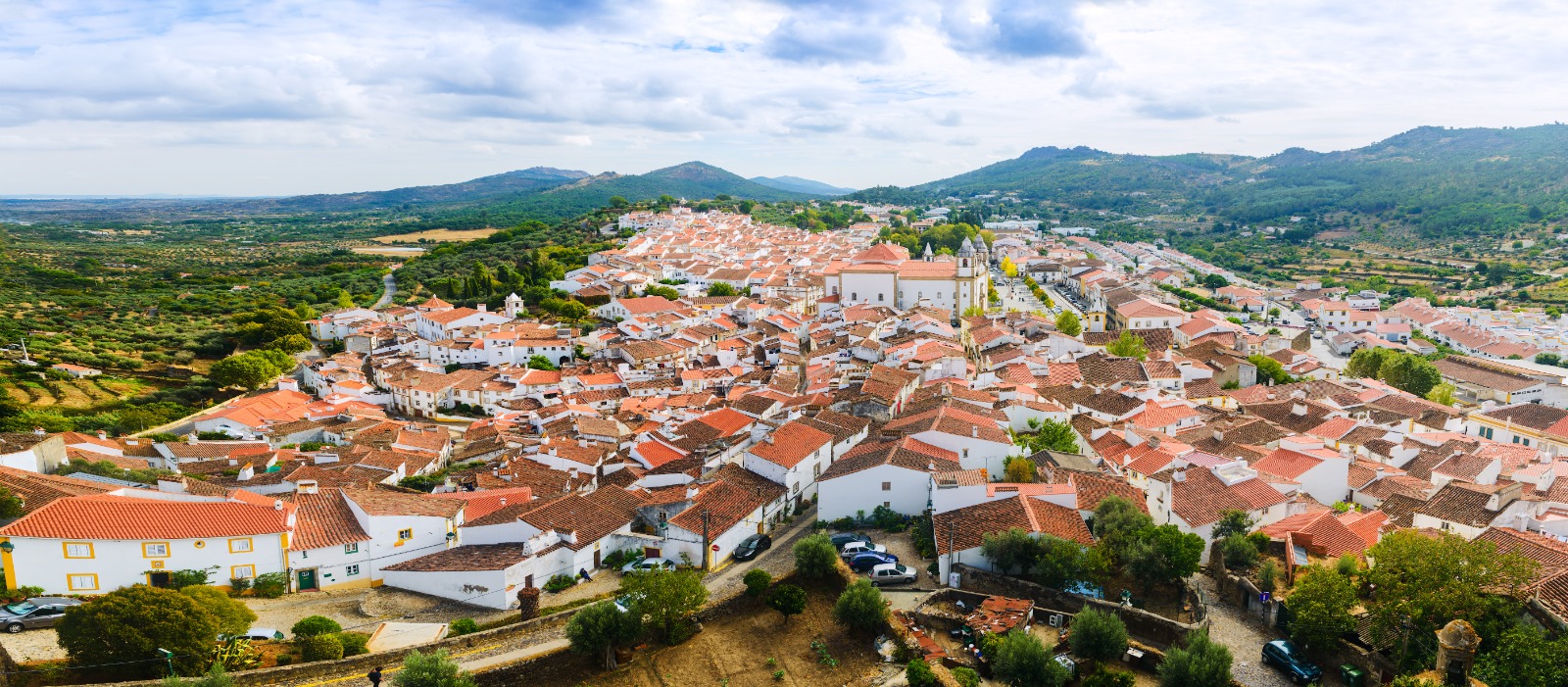Eating Sustainably in Évora
Thursday 4 May 2023
Last week, on 27 April 2023, the ELIA Green Team Intern Peiyu Jiang and ELIA Communications Assistant Paula Werdnik had the pleasure of speaking with pianist and Dean of the School of the Arts, University of Évora Ana Telles. The meeting was a unique opportunity to discuss the topic of food sustainability at the ELIA Academy 2023: Exploring Situatedness, which will be taking place from the 10-12 May in Évora, Portugal and will be hosted by the University of Évora. Ana Telles shared her vision for the menu and catering at the ELIA Academy 2023, and what steps the School of Arts, University of Évora is taking to ensure that the event will be sustainable and align with the local tradition and the sustainability policy of the University. Ana explored the narrative of how the topic of food sustainability links to the themes of the event such as situatedness and slow-living. Firstly, she described the Montado ecosystem, an ecosystem which is a blend of natural and man-made influences, which is very specific to the extreme weather conditions of the Alentejo Region in Portugal. She mentioned wheat, wild mushrooms, wild asparagus, cork oak trees (which grow acorns, known as “bolota”, which can be used to make acorn flour), and free-range black Alentejano pigs, which provide black pork, as part of this ecosystem. It is also an area famously known for its local wines. This area is a unique UNESCO World Heritage Site. To learn more about the Montado ecosystem, see the UNESCO website here. Learn more about the food of the region through National Geographic's article here. For Ana the menu at the ELIA Academy 2023 is “a statement”. Linked to the event theme of situatedness, it is telling a narrative about the culture and heritage of the Alentejo region (known as the gastronomical soul of Portugal) and Évora. Ana was adamant in the planning of the event about the importance of using local, traditional, regional and in-season ingredients. She wanted to tell a story through the food about Portuguese culture. 
The option to eat local and free-range black pork (about which you can find further information here) will be featured on the menu, due to its connection to the local heritage and historical relevance, as well as its significance in the region's Montado ecosystem. Meat-free options (vegetarian/vegan) will also be served as the university will try to accommodate all participants' dietary needs and preferences. Ana stressed the importance of not importing any products, and the university's wish to work with small-scale, local producers – and if strictly necessary, national producers from outside of the region. For example, some of the thirteen local eco-certified wine producers will be sponsoring the event. Learn more about the Wines of Alentejo Sustainability Programme here. The University of Évora aims to use a ‘kilometer zero’ approach in their catering. This means using local ingredients within a radius of maximum 50 kilometers from the university itself. This notion is linked to the ‘slow food’ movement. As the event focuses on the notion of slow living, the menu is part of the event theme, which is a direct response to fast food and contemporary fast-paced ways of living. With a kilometer zero approach, the aim is to use local products to reduce carbon emissions from transportation. It is also a form of preserving local traditions and cultures and re-connecting consumers with food. Additionally, the event will not use any plastic cutlery or plastic water bottles. Participants are encouraged to bring their own reusable water bottles. The university has a ‘No Waste Policy’ and will be transporting any unused ingredients to nearby food banks to avoid waste.
The ELIA Academy, including the catering offer at the event, is aligned to the SHIFT Eco-Guidelines for Networks. By implementing these guidelines in collaboration with its partners, ELIA is working towards achieving eco-certification by the end of 2023.
|